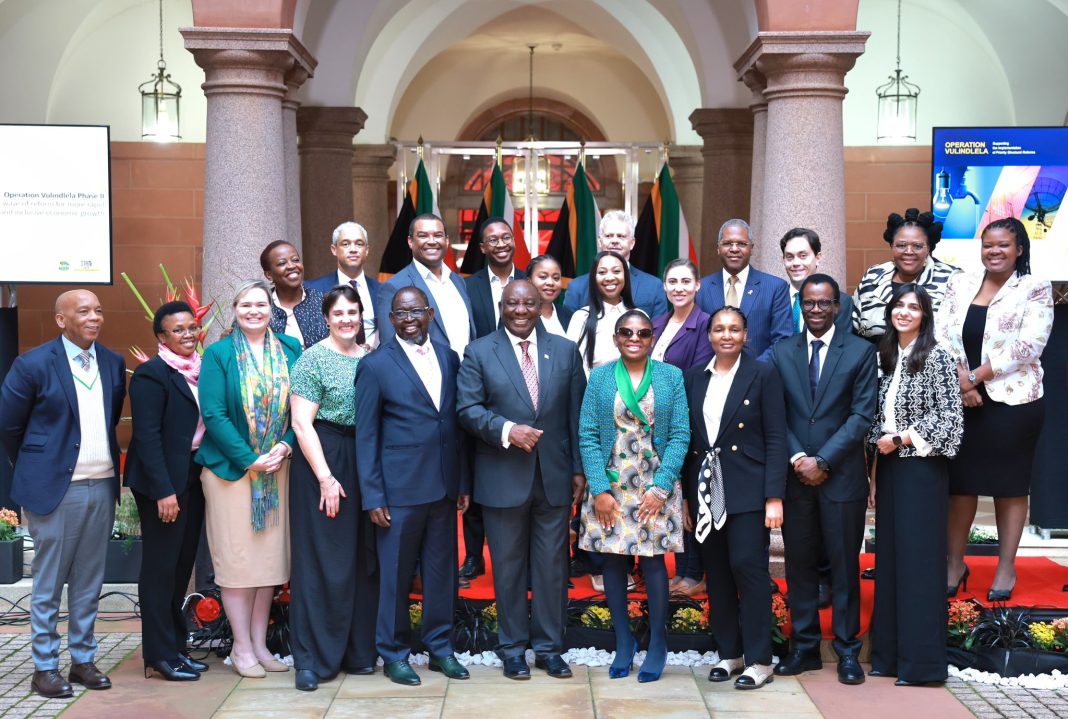By Thebe Mabanga
The Local Government sector will be the focus of the second phase of economic reforms under Operation Vulindlela II, with major changes expected in water reticulation and spatial planning.
This is according to Duncan Pieterse, Director-General of the National Treasury.
Speaking ahead of the official launch of Operation Vulindlela Phase II by President Cyril Ramaphosa, Pieterse told reporters that a key lesson learned is the importance of focusing on a few key priorities rather than spreading resources too thin.
“To be successful, we must consistently focus on the implementation of a limited number of priorities because comprehensive approaches tend to result in a dissipation of focus across too many issues, resulting in little progress being made” said Pieterse during his technical briefing.
Pieterse then noted that new reform areas “that matter for inclusion, resilience, and spatial equity, include strengthening the effectiveness of local government service delivery, especially in metros, using digital public infrastructure to modernise state capabilities and unlock economic participation and driving urban densification and spatial integration to reduce transport costs and connect people to opportunity, a process that is centred on municipalities.”
One of the new areas of focus for the new set of reforms is water, where many municipalities face supply disruptions and must implement water restrictions due to ageing water infrastructure.
Taking to the podium, Ramaphosa said these reforms will generate significant capital.
“We will establish the National Water Resources Infrastructure Agency as a dedicated entity to own manage and invest in our water resources,” said Ramaphosa.
“Through the Water Partnerships Office, we will support public-private partnerships in water infrastructure to reduce leaks, access new water sources and improve wastewater treatment.”
To address the root causes of service delivery failures, President Ramaphosa announced that government will amend the Water Services Act to separate the roles of municipalities as water service authorities and water service providers.
During the technical briefing, a senior official cited a metro that collects R10 billion in water revenue but reinvests less than 10% in infrastructure, with the remainder directed towards municipal operations, including salaries.
Government is also considering the creation of utilities as metro trading entities for electricity, water, and eventually waste collection, a key revenue sources for municipalities.
“The days of standing by and watching while taps run dry or raw sewage runs into our rivers are over. We will take action to make sure that right of every South African to quality drinking water is protected,” said Ramaphosa.
Ramaphosa said municipalities will be a focal point of reforms.
“Many of our municipalities are unable to deliver basic services to households and businesses.” he said.
A White Paper on the institutional arrangements and funding of local government has been updated by the Minister of Local Government and traditional Affairs and the sector will be professionalised by reviewing the hiring criteria for senior managers.
“This will be done by extending the mandate of the Public Service Commission to local government and taking action against municipalities that fail to comply with minimum competency standards,” he said.
National Treasury will review the local government fiscal framework, including the design of conditional grants, to ensure that municipal revenue aligns with their service delivery responsibilities.
The second phase of Operation Vulindlela will span the next five years, aligning with the term of office of the 7th administration.
INSIDE METROS

